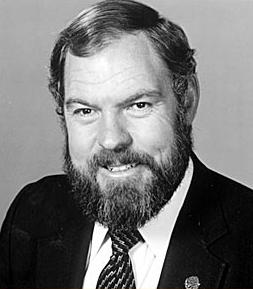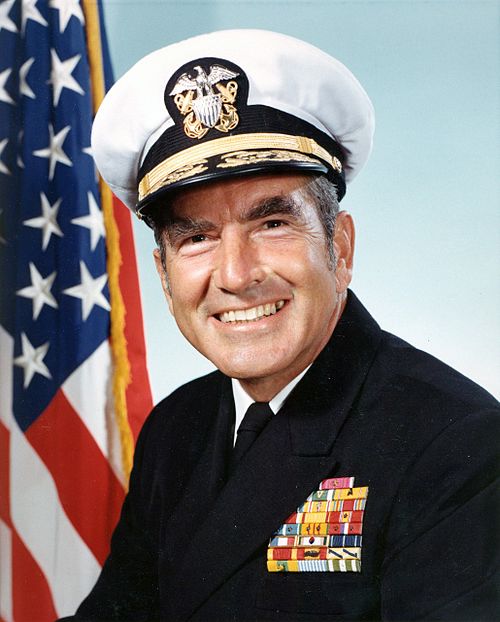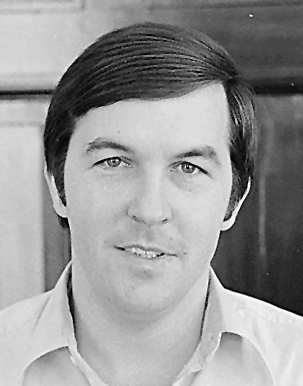Thankful to those who make our communities a better place!
Belluck & Fox is grateful to the organizations and individuals who work every day to make our communities a better and more just place for all. The firm has been a proud supporter of charitable causes in the state of New York and across the country. This year, we have supported the following worthwhile causes:
Mesothelioma Applied Research Foundation
 The Mesothelioma Applied Research Foundation is a nonprofit charity organization dedicated to ending mesothelioma, and the suffering caused by this cancer, by:
The Mesothelioma Applied Research Foundation is a nonprofit charity organization dedicated to ending mesothelioma, and the suffering caused by this cancer, by:
- funding research to improve treatment options;
- providing treatment supportand education for patients and their families;
- and advocating for federal funding of research.
The International Mesothelioma Interest Group (iMig)
 iMig is the world’s preeminent conference devoted exclusively to all aspects of the study and treatment of mesothelioma.
iMig is the world’s preeminent conference devoted exclusively to all aspects of the study and treatment of mesothelioma.
 Special Olympics New York provides inclusive opportunities for people with intellectual disabilities to discover and unleash the champion within. Joe Belluck is a member of its Board of Directors.
Special Olympics New York provides inclusive opportunities for people with intellectual disabilities to discover and unleash the champion within. Joe Belluck is a member of its Board of Directors.
The American Association for Thoracic Surgery
 The American Association for Thoracic Surgery (AATS) seeks to advance the field of cardiothoracic surgery by promoting scholarship, innovation, and leadership. The organization was founded in 1917.
The American Association for Thoracic Surgery (AATS) seeks to advance the field of cardiothoracic surgery by promoting scholarship, innovation, and leadership. The organization was founded in 1917.
 Precious Dreams Foundation, a nonprofit organization co-chaired by Joe Belluck, provides sleep support, teaches healthy coping mechanisms, and helps youth in foster care and homeless shelters uncover paths to fostering their dreams.
Precious Dreams Foundation, a nonprofit organization co-chaired by Joe Belluck, provides sleep support, teaches healthy coping mechanisms, and helps youth in foster care and homeless shelters uncover paths to fostering their dreams.
 The mission of Vera House, Inc. is to prevent, respond to and partner to end domestic and sexual violence and other forms of abuse.
The mission of Vera House, Inc. is to prevent, respond to and partner to end domestic and sexual violence and other forms of abuse.
University at Buffalo School of Law
 Among the strongest public law schools in the nation and a world-class center for interdisciplinary studies, the University at Buffalo School of Law provides students with a strong theoretical foundation and the practical tools they need to succeed in a competitive environment.
Among the strongest public law schools in the nation and a world-class center for interdisciplinary studies, the University at Buffalo School of Law provides students with a strong theoretical foundation and the practical tools they need to succeed in a competitive environment.
 The Haitian Ladies Network® is the largest global platform connecting more than 80,000 women and girls of Haitian descent from across the U.S., Haiti, Canada, Europe, Asia, Africa, and the Caribbean.
The Haitian Ladies Network® is the largest global platform connecting more than 80,000 women and girls of Haitian descent from across the U.S., Haiti, Canada, Europe, Asia, Africa, and the Caribbean.
 The mission of the nationally acclaimed American Museum of Tort Law is to educate, inform and inspire Americans about two things: Trial by jury; and the benefits of tort law.
The mission of the nationally acclaimed American Museum of Tort Law is to educate, inform and inspire Americans about two things: Trial by jury; and the benefits of tort law.
 The Hudson Valley Hospice serves the people of Dutchess and Ulster counties by enhancing the quality of living for those at the end of life.
The Hudson Valley Hospice serves the people of Dutchess and Ulster counties by enhancing the quality of living for those at the end of life.
Cannabis and mesothelioma: can cannabis help with disease and treatment side-effects?
Last week, during the International Symposium on Malignant Mesothelioma, Dr. Carol Parise presented on the topic of cannabis and mesothelioma. This is a topic of interest to many because while cannabis is already in use by many cancer patients outside of the medical setting, the drug itself is still categorized as a Schedule I drug on a federal level, in direct conflict with state policies that make it legal medically in most states and recreationally in some. Such Schedule I classification requires that cannabis be as tightly regulated by the federal government as heroin, LSD, and ecstasy thus limiting greatly the amount of research possible into this compound.
Cannabis reclassification from Schedule I to Schedule III substance
Recently, in an extraordinary move from its strict historical policy, the U.S. Drug Enforcement Administration has indicated that it will begin the process of reclassifying cannabis from the most restricted Schedule I category, to a more lenient Schedule III drug classification. The ripple effects of this change are expected in the criminal system by preventing incarceration of cannabis offenders, and in the political system by erasing the inconsistencies between federal and state governments. Ultimately, medical research into this compound is expected to finally yield important scientific information about the benefits of cannabis for cancer patients. The exact timeline of these changes remains unknown at this time.
Cannabis types and consumption
Cannabis is a plant that contains cannabinoids, which are compounds that affect the central nervous system. Not all cannabinoids are psychoactive, however. Cannabidiol, which is best known as CBD, has been known as potentially having beneficial effects for cancer patients, without the “high” that is more typical of “marijuana.” The psychoactive compound in cannabis is known as delta-9-THC.
Before taking any drug, substance, or supplement, especially while on active treatment, a patient is encouraged to speak with their physician to avoid any drug interactions that would make their treatment less effective.
Some early studies have shown a potential decrease in effectiveness from immunotherapy when coupled with cannabis consumption.
Cannabis can be taken either by ingestion as an edible or drink, or it can be inhaled as smoke or vapor. Absorption into the bloodstream follows different processes depending on method of consumption, with a much quicker activity seen in inhaled cannabis. However, pleural mesothelioma patients may have to rely on ingestion to avoid further tasking the lungs. Similarly, peritoneal mesothelioma patients might have an easier time with inhalation.
Cannabis and Mesothelioma
There are currently no studies looking into the ability of cannabis to treat cancer, including mesothelioma. However, the use of cannabis to mitigate disease symptoms and side-effect from treatments like chemotherapy has scientific data behind it. Often, patients use cannabis to stimulate their appetite and fend off nausea during chemotherapy treatments when patients have difficulty eating. Cannabis is also used as pain relief and for help managing anxiety and sleep disturbances. Uses that have shown empirical benefit include:
- Using cannabis to relieve nausea and vomiting caused by chemotherapy
- Using cannabis to improve appetite and caloric intake of patients who have difficulty eating due to disease effects and chemotherapy symptoms
- Pain relief during all stages of a cancer diagnosis
- Management of anxiety and as a sleep aid
Downsides of cannabis use for mesothelioma
Due to its classification as a Schedule I drug, cannabis has not been studied enough to understand the potential pitfalls of using it. Patients using cannabis should exercise caution particularly as they choose the method of cannabis consumption.
Belluck & Fox Sponsors Mesothelioma Patient Conference in October
The law firm of Belluck & Fox is a top sponsor of the Mesothelioma Applied Research Foundation’s annual conference which will take place on October 17-18, 2024, in Chicago. The firm’s partner, Joe Belluck, Esq., will be a speaker on the Legal Panel on Friday, October 18.
The conference, which is also known as the International Symposium on Malignant Mesothelioma, is geared specifically to mesothelioma patients and their families. Unlike other medical and scientific conferences, the symposium provides families impacted by mesothelioma the opportunity to learn about mesothelioma treatment options in an accessible way directly from medical specialists who treat mesothelioma. Also, being in the same room with world’s specialists, allows patients and their families the ability to ask questions and get answers without having to travel across the country to meet with each individually.
“We are committed to mesothelioma patients and their families,” said Mr. Belluck.
“Through this sponsorship we want to recognize the Meso Foundation’s great work in supporting the mesothelioma community through diagnosis and treatment and we want to make sure they can continue to do so,” he added.
Belluck & Fox is a premier law firm for asbestos-related illnesses like mesothelioma. With more than $1 billion secured for its mesothelioma clients and their families, it is a go-to law firm for mesothelioma, lung cancer, and asbestosis cases.
“What sets us apart is our legal expertise to take on and win against the largest corporations while doing so quickly and compassionately,” explained Mr. Belluck.
“We know that mesothelioma patients need compensation as soon as possible so they can pay for treatment costs and travel to see specialists or enroll in clinical trials. We don’t waste any time in providing the highest quality representation.”
Mr. Belluck has over 25 years of experience representing mesothelioma patients. He is also an author and has co-written the book “100 Questions & Answers about Mesothelioma” with Harvey Pass, MD and Mary Hesdorffer, APRN. He has also written and published the book “A Patient’s Guide to Mesothelioma,” which he offers free of charge as a resource to patients and their families.
“For 25 years, the Belluck & Fox firm has supported mesothelioma research and is proud to continue to help fund research into new diagnostic tests and treatments for our mesothelioma clients,” Mr. Belluck concluded.
Prior to funding Belluck & Fox, Mr. Belluck represented the State of New York in its tobacco litigation. Through his work, he forced the tobacco industry to stop sponsoring fake scientific research and take down advertising billboards in the state of New York.
First ever FDA-approval of immunotherapy plus chemotherapy combination for advanced mesothelioma
Today, the U.S. Food and Drug Administration (FDA) approved the third ever treatment for mesothelioma. As of today, in addition to the standard chemotherapy regimen and the immunotherapy regimen, the combination of immunotherapy plus standard chemotherapy is available to clinicians for the treatment of patients with advanced or metastatic mesothelioma in a first line setting.
Keytruda, which is the industry name for Merck’s pembrolizumab agent was approved after a positive 2023 Italian/Canadian collaborative study demonstrating a survival improvement for their immuno-chemotherapy combination.
About the clinical trial
The IND.227 clinical trial had enrolled 440 treatment-naive patients randomizing them into two groups, one of which was experimental. The first group received only standard chemotherapy, while the second group received chemotherapy plus Keytruda (pembrolizumab). The experimental arm saw a one month survival improvement (17.3 months’ survival as opposed to 16.1 months for the chemotherapy alone arm). However, as is the case with other immunotherapy data in mesothelioma, patients with the more aggressive types of mesothelioma (biphasic and sarcomatoid) gained the most from the immunotherapy addition. For this group, the survival benefit exceeded 4 months over the survival of their peers in the non-experimental treatment arm, an improvement which ultimately also led to this approval.
About pembrolizumab (Keytruda)
 Pembrolizumab is an immunotherapy agent known as a checkpoint inhibitor. Checkpoints are proteins located on t-cells that, when bound together with partner proteins on the tumor cell, disable the immune response of the t-cell against the tumor cell. It functions sort of like a handshake. Disrupting this process, or inhibiting this connection, allows the t-cells to recognize the tumor as a foreign entity and kill it. The class of drugs called checkpoint inhibitors bind to these checkpoint proteins (known as PD-1 and PDL-1, depending on their location) so that no handshake can occur, thus effectively taking the breaks off the immune system.
Pembrolizumab is an immunotherapy agent known as a checkpoint inhibitor. Checkpoints are proteins located on t-cells that, when bound together with partner proteins on the tumor cell, disable the immune response of the t-cell against the tumor cell. It functions sort of like a handshake. Disrupting this process, or inhibiting this connection, allows the t-cells to recognize the tumor as a foreign entity and kill it. The class of drugs called checkpoint inhibitors bind to these checkpoint proteins (known as PD-1 and PDL-1, depending on their location) so that no handshake can occur, thus effectively taking the breaks off the immune system.
About mesothelioma treatment
Mesothelioma treatment has lagged behind other cancers. Its first FDA-approval came in 2004 when Alimta plus cisplatin chemotherapy extended median survival by 3 months (from 9 months to 12 months). For over 16 years, mesothelioma didn’t see any new treatments added to its line-up until 2020 when a landmark study of two immunotherapy agents, nivolumab and ipilimumab (Opdivo/Yervoy) by Bristol Myers Squibb, demonstrated a significant improvement in overall survival of over 4 months (from 14.1 months to 18.1 months), leading to its approval shortly thereafter. This third approval is a therefore a welcome addition to the treatment arsenal for mesothelioma.
EPA Fully Bans Chrysotile Asbestos: A Critical Step Towards Protecting Public Health
In a significant move to safeguard public health, the Environmental Protection Agency (EPA) has finalized a ban on chrysotile asbestos, a toxic mineral responsible for an estimated 40,000 deaths in the United States each year. This announcement comes as a crucial step in addressing the widespread presence of this cancer-causing substance.
This long-awaited ban marks the culmination of decades of effort to address the pervasive threat posed by asbestos. Despite previous attempts by the EPA to eliminate its use, including a federal ban over 30 years ago that was subsequently blocked by a court order, asbestos has remained a persistent danger in homes, schools, and various industries across the country.
“Today is a historic day for our country, bringing hope and some solace to the countless workers and families affected by asbestos,” said Joe Belluck, managing partner at Belluck & Fox. “We may not have a cure for mesothelioma, but we are thankful to the EPA for finally doing the right thing and trying to stop it in its tracks. This ban means a safer, healthier future for generations to come.”
Chrysotile asbestos, one of six types of asbestos, has long been recognized for its role in causing mesothelioma and other serious health issues. Also known as “white asbestos,” chrysotile asbestos is the only form of asbestos still used and imported in the United States today.
The positive effects of this ban extend beyond regulatory measures. Asbestos litigation continues to unfold across the country, with major corporations facing legal battles over their role in exposing consumers to asbestos-related health risks. From Johnson & Johnson’s talc-based products to cases involving military veterans, the link between asbestos exposure and mesothelioma is well established, highlighting the urgent need for accountability and justice.
Joe Belluck’s dedication to defending innocent consumers spans decades, exemplified by his groundbreaking work in tobacco litigation. Today, Belluck & Fox stands as one of the nation’s premier mesothelioma and asbestos law firms, offering compassionate support and legal expertise to those facing the challenges of asbestos-related illnesses. With over 25 years of experience, Belluck & Fox attorneys have won over $1 billion in settlements and verdicts for clients and their families.
At Belluck & Fox, we stand in solidarity with those impacted by asbestos-related illnesses and commend the EPA’s action to protect public health. While this ban represents a significant victory, our commitment to advocating for the rights of victims remains unwavering. As we celebrate this milestone, we remain vigilant in our pursuit of justice and accountability for those affected by asbestos exposure.
If you or a loved one has been diagnosed with mesothelioma, reach out to Belluck & Fox for a free consultation.
Asbestos Was Used as Fake Snow and Christmas Tree Decorations
A white Christmas may fill you with happy memories and warm family moments. So might the classic film The Wizard of Oz. However, before the dangers of asbestos were well known, both of these had one concerning thing in common: asbestos was used as a substitute for snow.
Fake snow has a history of dangerous substances. Before asbestos, decorators would use borax flakes or even ammonia because, like asbestos, it had a white and fluffy appearance.
While this is an interesting historical tidbit, it’s also an important warning for people even today. If you have been using Christmas decorations that have been passed down from generation to generation since the mid 20th century, there is a chance they could be contaminated with asbestos.
In addition to the Wizard of Oz, it’s recorded that asbestos was also used as fake snow in Citizen Kane, considered by many critics to be the greatest film ever produced.
Why is this so important? Asbestos is a known carcinogen directly causing mesothelioma, a deadly cancer of the lungs. Even small traces of exposure to asbestos have been linked to cases of mesothelioma.
In fact, while we know of the well-documented severe dangers of asbestos, it is still not completely banned in the United States. Some products that still utilize asbestos include car parts and construction materials. Traces of asbestos have even been found in cosmetic products that include talc.
If you or a loved one has been diagnosed with mesothelioma, Belluck & Fox can help. Reach out to our experienced attorneys today for a free consultation.
Should mesothelioma patients get the COVID-19 vaccine booster?
When dealing with malignant mesothelioma it is important to take care of your health and wellbeing both physically and emotionally. As we all know the past year and a half we have been dealing with the COVID-19 virus and disruptions to our health and lives. Progress has been made with testing and vaccinations but not without questions.
According to the U.S Coronavirus Vaccine Tracker as of August 2021, 62% of the US population have received at least one dose of the vaccine. Fully vaccinated people make up 53% of the population.
It is expected that this year the COVID-19 booster shot will be made available for everyone in the United States to provide additional protection against the COVID virus. For some people they may have already received their third shot.
What is the difference between a third dose and a booster shot There are different reasons for people to get a third dose and a booster shot.
The patient’s that have already received the third dose are receiving it because the first two doses may not have mounted enough of a defense against COVID-19 initially. For some people who have a compromised immune system it has been found that they had little or no protection following the two doses of mRNA COVID-19 vaccine. Certain cancer patients and survivors have received a third dose already to strengthen their immune system response. It is estimated that more than a million Americans have received an extra vaccine, a third dose, and they have compromised immune systems with the goal to strengthen their immune systems response against COVID -19.
The reason for the booster dose is that protection from the virus may have reduced and worn off over time. The current recommendation for when to receive your booster shot is 8 months after the last dose. The COVID-19 vaccination booster is being offered after 8 months of completion of the first two vaccination shots. It will be available for free and like the initial vaccination, it is believed to be highly effective, safe, and it works.
The decision to get or not get a COVID vaccination is one that has been talked about with much passion. For people diagnosed with malignant mesothelioma, talk to your medical team. Listen to the experts and protect yourself and your loved ones!
8 Famous People Who Died From Workplace Asbestos Exposure
If you’re operating under the assumption that mesothelioma and other workplace asbestos-related diseases only strike blue-collar workers, think again.
Read on to learn about a few of the countless famous people who died from asbestos exposure.
Table of Contents
A 2018 study published in the International Journal of Environmental Research and Public Health revealed that asbestos related diseases were listed as the cause of death in 39,275 people within the US and 22,321 individuals worldwide.
When it comes to mesothelioma and other asbestos related diseases, it doesn’t matter if you’re a household name or have lived a life of obscurity — there is no discrimination. Many of these people were exposed at their workplace and didn’t find out about it years later when they were diagnosed with Mesothelioma.
Below, we’ll take a look at famous people who died from asbestos exposure — specifically from their place of work — including actors, a pro football player, an Olympic wrestler, and a singer/songwriter.
Our firm fights for people that have been exposed to asbestos at work, companies like Garlock Sealing Technologies, Goulds Pumps, Eastman Kodak and many more. If you or a loved one are suffering from asbestos-induced mesothelioma contact our law firm today.
Famous People Who Died From Asbestos-Induced Mesothelioma

1. Steve McQueen
Nicknamed the “King of Cool,” actor Steve McQueen is one of the most famous mesothelioma victims. He was one of Hollywood’s leading men of the 60s and 70s and became famous for his roles in The Towering Inferno, Bullitt, and The Magnificent Seven. McQueen claimed status as the world’s highest-paid movie star in 1974.
Steve McQueen was diagnosed with peritoneal mesothelioma in 1979. By October 1980 his cancer was widespread, and he died of heart failure on November 7, 1980, at the age of 50.
A few months prior to his death, McQueen stated in an interview that his mesothelioma was caused by asbestos exposure in two different professions. While serving in the United States Marine Corps, he recounted removing asbestos from the pipes of the engine room of a ship. He also cited his exposure to inhaling asbestos fibers in fire retardant racing gear and the asbestos used in movie set insulation.

2. Paul Gleason
Famous for his role as the principal of the 80s movie The Breakfast Club, Paul Gleason appeared in over 60 films and TV shows including Seinfeld, Friends, All My Children, and Die Hard.
Gleason passed away on May 27, 2006, a short 3 weeks after being diagnosed with pleural mesothelioma. It’s believed Gleason’s asbestos exposure occurred while working on building sites as a teen.

3. Merlin Olsen
Besides being known as a longtime NBC pro football broadcaster, Merlin Olsen is recognized as one of the greatest tackles in the history of the NFL. He also had an acting career that included his own series, Father Murphy, and his role as Jonathan Garvey made him a beloved member of the Little House on the Prairie cast.
Olsen was diagnosed with peritoneal mesothelioma in 2009 and passed away shortly after, in March 2010 at the age of 69.
Olsen’s exposure to asbestos began with a summer job on a construction site at age 11 and continued with a lifetime of exposure, including the materials used on Hollywood sets.

4. Christie Hennessy
An Irish folk singer and songwriter, Christie Hennessy is best known for his songs “All the Lies that You Told Me,” “Roll Back the Clouds,” and “Don’t Forget Your Shovel.”
The singer was diagnosed with pleural mesothelioma in May 2007, dying at the age of 62, just 7 months later.
Hennessy’s exposure to asbestos was the tragic result of decades of working as a decorator and painter in London, including rubbing down asbestos pipe covers prior to painting.

5. Elmo Zumwalt
Elmo R Zumwalt Jr. was a highly decorated Vietnam War veteran, who went on to become the youngest man to serve as the US Chief of Naval Operations.
Along with many other members of the US Navy, Zumwalt developed mesothelioma as a result of his exposure to asbestos while aboard U.S. naval ships.
Diagnosed in July 1999, Zumwalt died on January 2, 2000, at 79 years of age.

6. Hamilton Jordan
White House chief of staff during Jimmy Carter’s presidency, Hamilton Jordan was instrumental in negotiating the Iranian Hostage Crisis of 1979.
As the result of his exposure to asbestos, while serving in Vietnam, Jordan died of peritoneal mesothelioma on May 20, 2008.

7. Terry McCann
Terry McCann was a wrestling gold medalist in the 1969 Olympics. While training for the Olympics, he spent a few weeks working in a nearby oil refinery in Oklahoma.
It never occurred to him that the fine, silvery dust he brushed from his hair and clothes each night, residue from the asbestos used to maintain the refinery’s equipment, would eventually kill him.
Terry’s diagnosis of pleural mesothelioma came in the spring of 2005, and he passed away a year later at the age of 72.
Terry McCann’s story is evidence that even minimal, brief exposure to asbestos is deadly.
 8. Warren Zevon
8. Warren Zevon
Singer-songwriter Warren Zevon is best known for songs like “Werewolves of London,” and “Keep Me in Your Heart.”
In August 2002 Zevon was diagnosed with mesothelioma. The cancer invaded his liver and wreaked havoc on his lungs, and he died just over a year later at the age of 56.
Zevon was most likely exposed to asbestos as a young boy while playing in the attic of his father’s Arizona carpet store, although there is also speculation that he was exposed in a factory from the lyrics in his song, “The Factory,” which could have been a first-hand experience.
Belluck & Fox Secures Justice for 30-Year-Old Mesothelioma Client
On April 14, 2021, Belluck & Fox, LLP began jury selection in Saratoga County, New York, for the first mesothelioma case to go to trial in New York since the beginning of the COVID-19 pandemic. Client Matthew Gautheir was in his 30s and had a developmental disability. His father worked at a truck engine service center where he regularly came into contact with asbestos engine gaskets. Unfortunately, the asbestos was brought home from work on his clothing and his son Matthew was diagnosed with mesothelioma. Although Matthew passed away just before his trial, his parents were committed to pushing forward with the case. Belluck & Fox, LLP settled the case with the last defendant on April 15, 2021.
“Every person with mesothelioma deserves justice,” attorney Joe Belluck said of the case, “From the start of this case until the last settlement, we believed that Matthew’s mesothelioma was caused by his father’s work with engine gaskets and his father was not properly warned of the dangers of working with asbestos. We are honored to have represented Matthew and his parents.”
At Belluck & Fox, our nationally recognized asbestos attorneys have extensive experience fighting for families and workers exposed to asbestos. We are proud to have secured more than $1 billion so far for asbestos victims and their families.
We are ready to help you. Contact us today to set up a free consultation, where we will review your claim and discuss all your legal options. Our law firm does not charge any legal fees upfront and we do not get paid unless and until we secure compensation for you.
Joseph Belluck Interviewed for Mesothelioma Applied Research Foundation Livestream
On January 27, Joe Belluck spoke with R. Taylor Ripley in the Mesothelioma Applied Research Foundation’s Meet the Mesothelioma Experts: Legal Edition livestream. The video recording can be watched here.